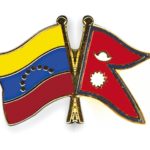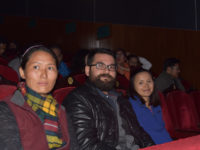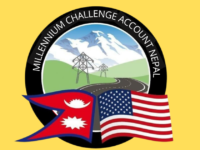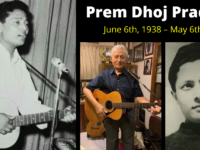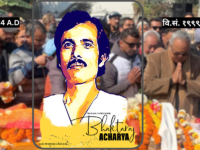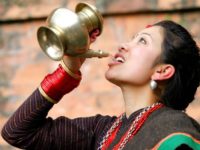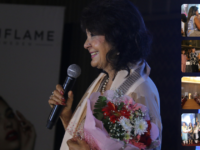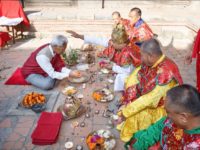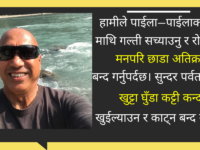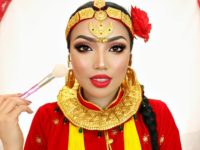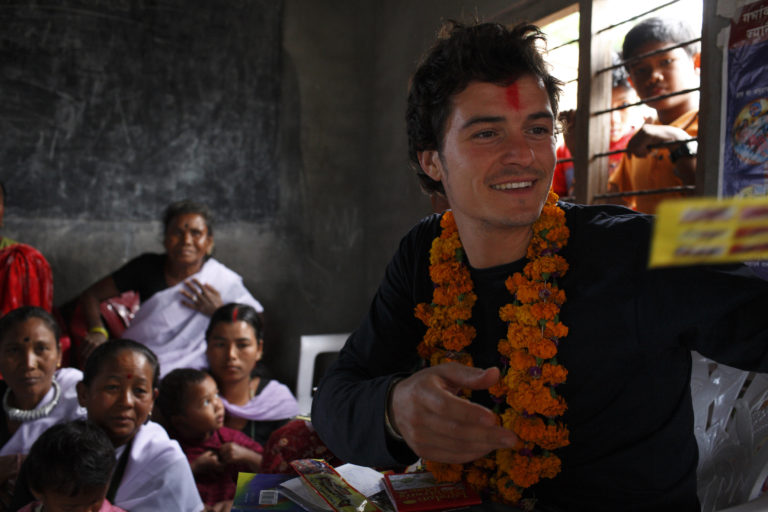By Sunil Babu Pant,

A dear friend from Vermont, Gus, was a frequent visitor to Nepal, not only because he loved Nepal but he also built deep relationship with the Gender and Sexuality minority communities in Nepal. He was instrumental in helping those living with HIV from these minority communities.
One day he asked me: “Why does everybody call me ‘Kuire’ Uncle? First I don’t like to be called ‘Uncle’, second what does ‘Kuire’ means? I have a name; my name is Gus with a capital G. why don’t they call me just ‘Gus’?”
These are innocent questions that many foreigners, who are often called Kuire (a white-person) + brother (or uncle or sister or aunt) in Nepal, baffled with such nicknames when they visit Nepal. This is probably similar throughout the regions across Asia.
We are taught from the childhood that it’s disrespectful to call anybody by name, especially your elders. I knew my father’s name early enough as I was introduced as Ramjee ‘s (my father’s name) son, in the school or anywhere else where elderly people were gathering and inquiring who I was. But I only knew my mother’s name much later when I was 13–14 years old while visiting my maternal-home. Some relatives of my mother asked me if was a son of Shashi. I told them: “No my father is Ramjee”, they said: “yes, but your mother is Shashi.” First time I realized that mothers have another name in addition to the name we call them: Mother !, my mother!.
The word ‘Name’ in Nepali language is translated as a ‘Naam’ (same in Pali and Sanskrit and in many Indic languages, the English word is directly taken from this very root word NAAM), also means Chitta (or mind). So the given names we have supposed to be the reflection of our Chitta or Mind; or at least the parents/elderlies expect that when grow-up we become like the name suggests that was given to us when we were kids. That’s why (middle) name like Bahadur (meaning brave) is very common for boys, Kumari (virgin) is a very common name for girls. Also Maan (meaning pride) for men and Maya(meaning illusion) for women are very common middle names. The most common and popular first names are usually taken from their favorite Hindu/Buddhist god or goddess , deities, demi-gods or many saints, like: Sita, Durga, Kali, Ram, Krishna, Buddha or Shiva etc.
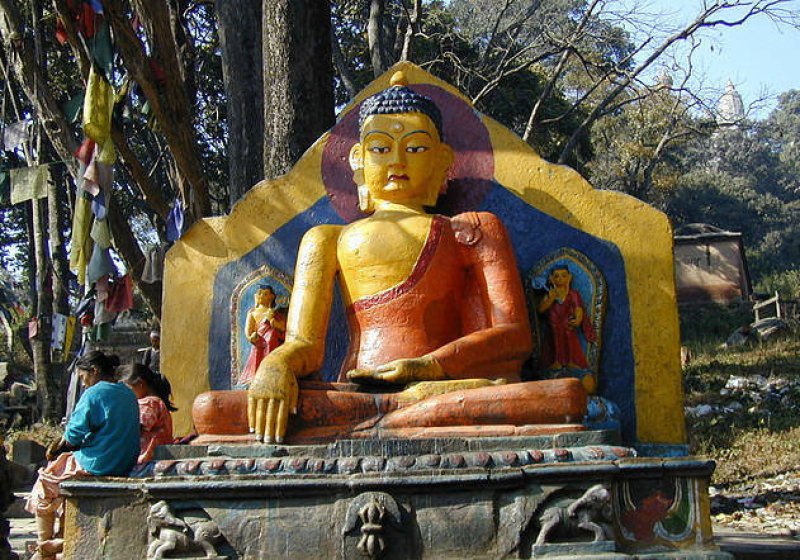
“Identity” is translated a pahichan, which usually refers to the social status you have acquired (or built up) through your exemplary role with others or in the society. So the ‘role’ you play or have been playing with others defines your identity.
When I just started Blue Diamond Society (an advocacy group for Sexual and Gender minority rights in Nepal) back in 2001, I got an opportunity to attend a training session (HIV, Gender and Sexuality, community building etc.) in Lucknow, India where Mr, Shivanandan Duncan Khan (one of the first activists who worked hard on HIV and LGBTQi rights in South Asia) was the trainer and many members of the sexual and gender minority communities from across India were participating. During the discussion of gender identity and sexual orientation subjects, all participants were introducing their sexual or gender identities as they prefer. Some were introducing themselves using the indigenous terms like Hijra, Kothi, Janana, Napumsaka and a very few of the participants were using the “modern” English term like Gay, Bisexual, Transgender, etc.
As soon as someone introduced himself as a gay person, another participant was quick to reflect saying “Aree, eh to Enshlish Kothi hei! (oh he is an English Kothi)”. Kothi means effeminate man who takes passive role. The gay man insisted upon his Gay identity, and then the other Kothi person’s reply was eye opening to me as she said something like this in Hindi: “Darling! you may be called yourself ‘Gay’ based on the western perspective, but here in India you will be called a ‘Kothi’ and since you are an English educated person, so we call you a ‘English Kothi’. Here in South Asia our identity is not defined only based upon who do you sleep with, but also, and more so, is defined based upon what role do you play with that other person you sleep with.”
Arguments continued but this reply made the importance of “what ROLE do you play” clearer to me. It defines our identities in South Asia. The indigenous identities are based on gender roles, not based upon the sexual orientations like in the west. It’s been many years since then but the debate on sexual and gender identities has not been settled yet between the English speaking LGBTQI communities and English non-speaking community members, perhaps the class divide is even wider now. Especially, the economic, cultural and intellectual influence from the west is continue getting stronger in rest of the world, regardless of the political or military colonization may have ended long ago. One group might prefer western-based (sexuality-based) identities using English terms while others struggle to keep their ageless indigenous (gender-based) identities.
And the roles (social, political, financial, professional or personal ones) you play with others defines your relationships with others, defines whether you are a friend or a foe. And we are part of the cultures that believes on building relationships and cherish the value of such relationships.
So a “name” is not just a label or data for us, it is the reflection of our feelings and thoughts (our mind), so it is perfectly fine to introduce yourself but how can you claim that you know the other one’s mind/thoughts/feelings by calling their name? So calling another by name feels odd, which may sound very odd to the western people, but this is the way eastern cultures perceive.
Also, from ancient time, our cultures are teaching us and reminding us to be mindful of not to inflate one’s ego, and name and identities are big part of our ego; hence the calling by a person’s name is always discouraged.
So all the “Kuire” Uncles, “Kuireni (white-female)” Aunts, or “Kuireni” sisters or “Kuire” brothers; I know it’s not part of your culture but it’s a beautiful approach for building relationships, please don’t get offended by it, rather appreciate when someone in Nepal calls you a “Kuire Uncle !”. The intent behind it is one of respect. You can do the same thing reciprocal, which, in fact, may also save you from an embarrassment of forgetting foreign names. Welcome to Nepal!
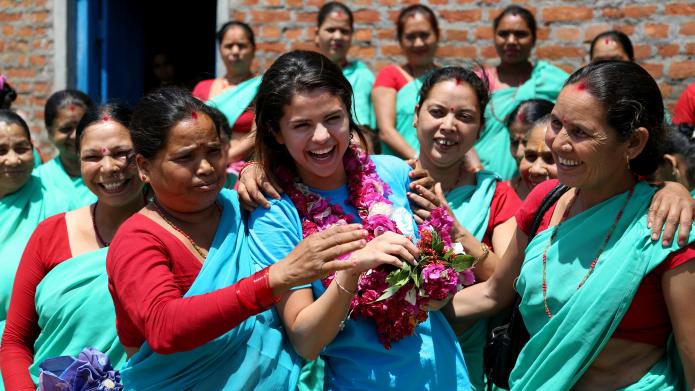
Namaste!
PS: the word Kuire is derived from the word Kuiro which means fog in Nepali language. Hence, Kuire means someone similar to the color of fog, which is (off-) white.
This article was written by Sunil Babu Pant. Sunil Babu Pant is the first openly gay politician in Nepal and member of parliament (2008-12). He founded Blue diamond Society in 2001 and led the organization until 2013. Moreover, at the meeting for the historic adoption of The Yogyakarta Principles held in November 2006, he was one of 29 experts. He filed written petition against the government of Nepal in supreme court and won the case in Dec. 2007 that legalize diverse sexual and gender identities.


